FUNDING CUTS IMPACT CT HUMANITIES: Help CT Humanities navigate recent funding cuts and continue our vital work across Connecticut. All donations made to CTH will be matched dollar-for-dollar up to $50,000. Donate today!
Now Viewing:
Belief
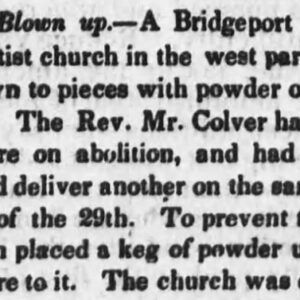
The Explosion of the Redding Baptist Meeting House
The explosion of Redding’s Baptist Meeting House provides a glimpse of the various arguments and conflicts about slavery swirling in one community before the Civil War.
Read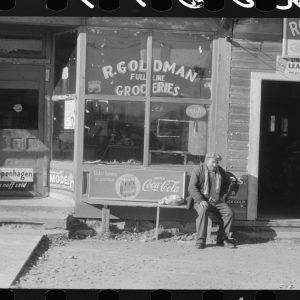
Jewish Farming Communities in Connecticut in the 19th and 20th Centuries
As Jewish immigration to Connecticut increased in the late 19th century, close-knit farming communities formed in Chesterfield and Colchester.
Read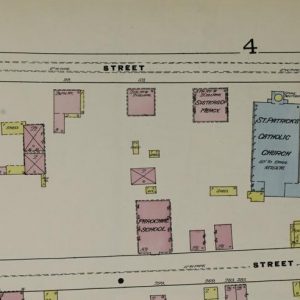
Connecticut’s First Roman Catholic Church
Hartford’s Holy Trinity Church became the first Roman Catholic church in Connecticut in 1829 and served the community for over 20 years.
Read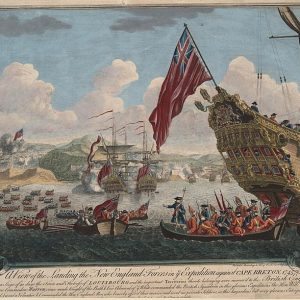
Connecticut’s French Connections
From Huguenots to French Canadian mill workers to modern immigration, Connecticut has always been a place shaped, in part, by a steady French influence.
Read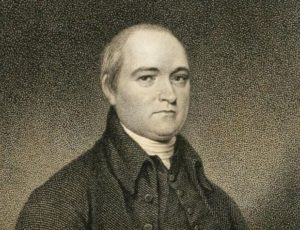
Timothy Dwight Dies – Today in History: January 11
On January 11, 1817, Timothy Dwight (theologian, educator, poet, and eighth president of Yale) died in New Haven, Connecticut.
Read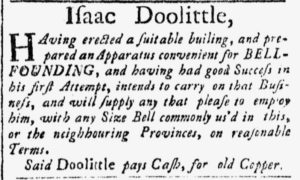
Early Church Bell Founders
Church bells served many important functions in early New England. Consequently, skilled bellfounders in Connecticut found themselves in high demand.
Read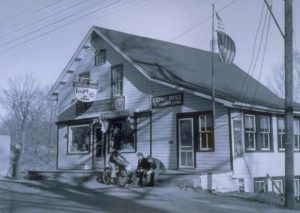
Connecticut’s Christmas Town
Nestled in a quiet section of Litchfield County lies the picturesque town of Bethlehem, known best for its designation as “Connecticut’s Christmas Town.”
Read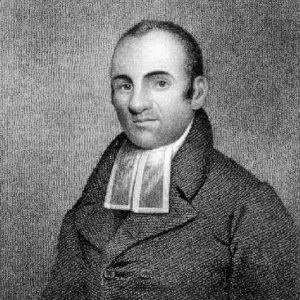
Lemuel Haynes: America’s First Black Ordained Minister
Lemuel Haynes was a father, husband, pastor, and patriot—he is widely considered to be the first Black man in America to be ordained by a Protestant church.
Read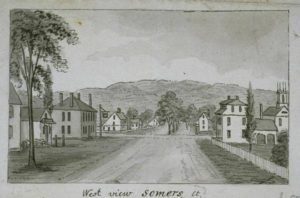
Somers School of the Prophets
The Reverend Charles Backus opened one of the more prodigious schools of the prophets in Somers, Connecticut.
Read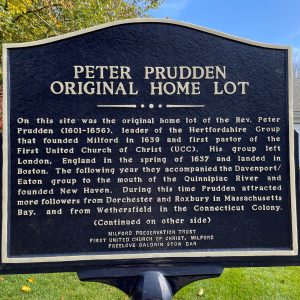
Peter Prudden: Milford’s First Minister
A pioneer preacher, a Puritan, and a scholar, Peter Prudden established the first European settlement that became the city of Milford.
Read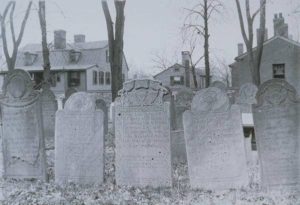
The Art of Burying the Dead: Exploring Connecticut’s Historic Cemeteries
From winged death’s heads to weeping willows, gravestone carvings in Connecticut’s historic cemeteries reflect changing attitudes toward mourning and memorialization.
Read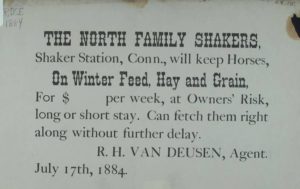
Enfield’s Shaker Legacy
Shaking Quakers settled in Enfield and created the packaged seed business.
Read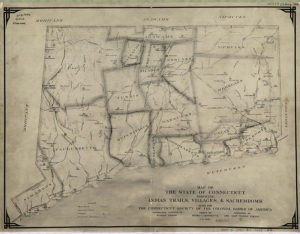
Andover to Woodstock: How Connecticut Ended Up with 169 Towns
Religious mandates, the difficulties of colonial-era travel, and industrialization are a few of the forces that gave rise to the proliferation of towns in our state.
Read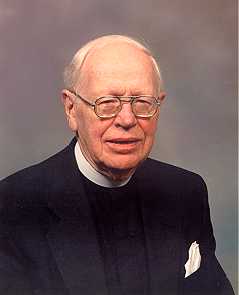
Canon Clinton Jones: A Revolutionary Figure in Connecticut’s LGBTQ+ History
Canon Clinton Jones was a central figure in Connecticut’s LGBTQ+ community and a pioneer for compassionate care, queer visibility, and gender affirmation.
Read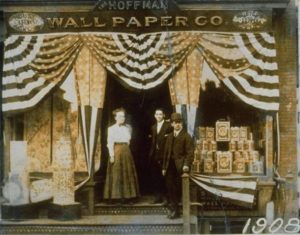
Tradition and Transformation Define Hartford’s Jewish Community
From the mid-1800s to the present, Jews have called Connecticut’s capital city home and enriched it with their cultural traditions and civic spirit.
Read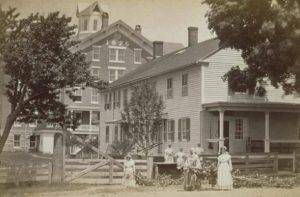
Shakers Revolutionize Garden Seed Business – Who Knew?
Enfield Shaker-grown garden seeds, one of their best and most successful endeavors, were sold throughout the US in small packages.
Read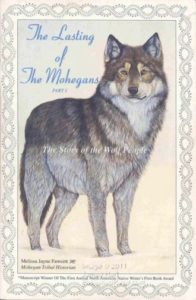
The Story Trail of Voices
Mohegan history and religion have been preserved by many different voices in many different families through Mohegan Oral Tradition. However, since before the American Revolution, four women in particular have passed on Mohegan stories.
Read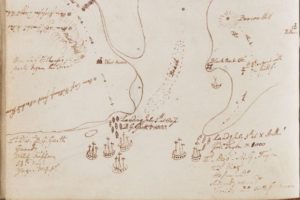
Ezra Stiles Captured 18th-Century Life on Paper
Among Ezra Stiles’ greatest contributions to history are the journals and records he kept detailing daily life in 18th-century New England.
Read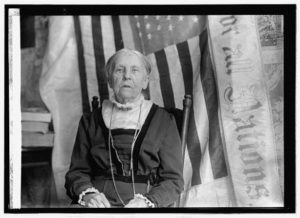
America’s First Ordained Woman Minister: Olympia Brown and Bridgeport’s Universalist Church
Long-time Bridgeport resident Olympia Brown was the first woman ordained as a minister in the United States and campaigned vigorously for women’s suffrage.
Read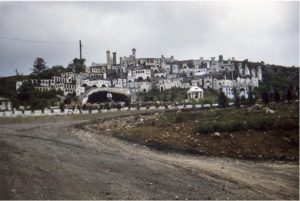
Waterbury’s Holy Land
Begun by Catholic activist John Greco in 1956, Holy Land USA fell victim to neglect and abandonment in the 1980s.
Read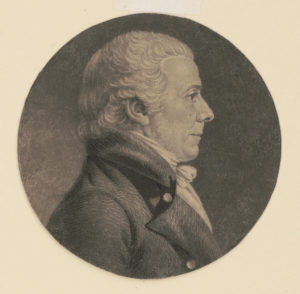
The Revolution of 1817
The Connecticut gubernatorial election of 1817 transferred power from the Federalists to the Republican Party, ending the Congregational Church’s domination.
Read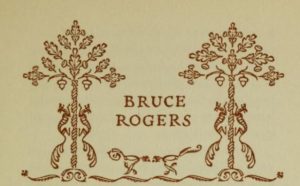
A Revolutionary Book Designer: Bruce Rogers of New Fairfield
Bruce Rogers was a book designer who settled in New Fairfield. Considered one of the great typographers of his time, his masterpiece was the 1936 Oxford Lectern Bible.
Read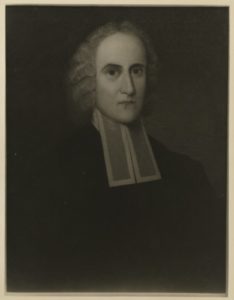
Connecticut Origins Shape New Light Luminary Jonathan Edwards
One of the most significant religious figures in US history, this theologian, philosopher, pastor, revivalist, educator, and missionary spent his formative years in Connecticut.
Read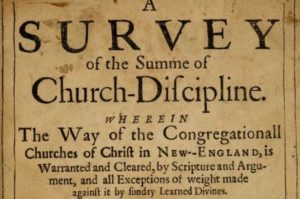
Thomas Hooker: Connecticut’s Founding Father
A powerful and popular preacher, Thomas Hooker led a group of Puritans out of Massachusetts in 1636 to settle new lands that eventually became the city of Hartford.
Read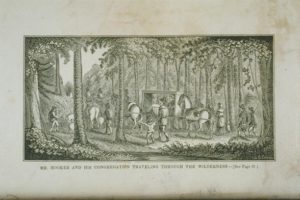
The Importance of Being Puritan: Church and State in Colonial Connecticut
Connecticut Protestants wanted to cleanse the church of what they saw as corruption, and to return to the simplicity and purity of early Christian worship.
Read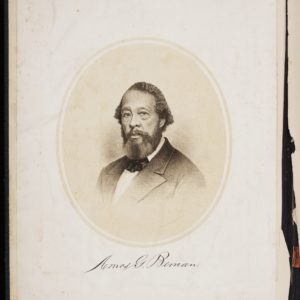
The Rev. Amos Beman’s Devotion to Education, Social Activism, and New Haven
Amos Beman spent much of his life a religious leader and social activist in New Haven, fighting the stereotypes and other obstacles he encountered because of his race.
Read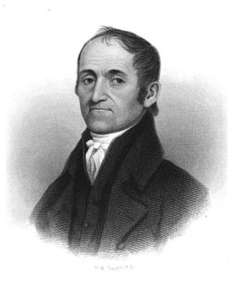
Home Missionary Society’s First Missionary – Today in History: August 7
On August 7, 1800, David Bacon, a native of Woodstock and a minister with the Home Missionary Society of Connecticut, set out on foot for the then far lands of the West.
Read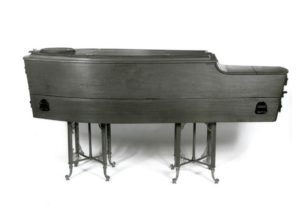
Death and Mourning in the Civil War Era
The Civil War transformed traditional practices of death and mourning in Victorian-era Connecticut.
Read
Mohegan Sacred Sites: Moshup’s Rock
Every nation has a spirit. The Mohegan Spirit moves and breathes within the very rocks and trees of the Mohegan Homeland in Uncasville, Connecticut.
Read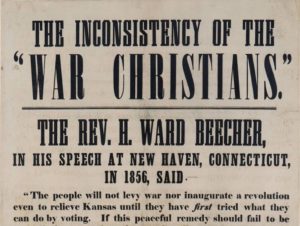
Henry Ward Beecher, a Preacher with Political Clout
This skilled orator championed woman suffrage, temperance, and the cause of anti-slavery but scandal nearly derailed his career.
Read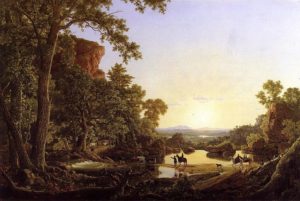
Hooker’s Journey to Hartford
In early June 1636, Puritan religious leader Reverend Thomas Hooker left the Boston area with one hundred men, women, and children and set out for the Connecticut valley.
Read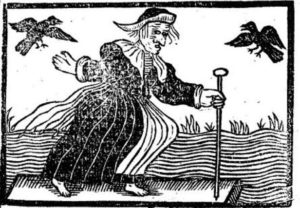
Alse Young Executed for Witchcraft – Today in History: May 26
On May 26, 1647, Alse Young of Windsor was the first person on record to be executed for witchcraft in the 13 colonies.
Read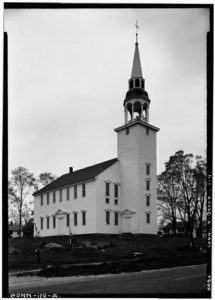
Celia Burleigh, Connecticut’s First Female Minister
In 1871, Celia Burleigh, a life-long activist and reformer, became minister of the Unitarian congregation in Brooklyn, Connecticut.
Read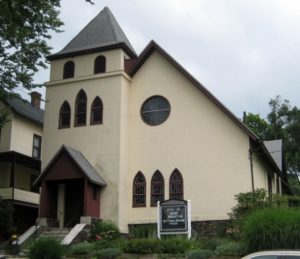
Site Lines: Fortresses of Faith, Agents of Change
Black churches, including the earliest ones in Connecticut, have long been at the forefront in the battle for social progress and equality.
Read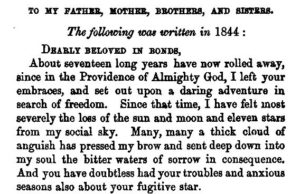
Reverend James Pennington: A Voice for Freedom
Having escaped from slavery in Maryland, this accomplished pastor, publisher, and freedom fighter challenged racism wherever he found it, even within the ranks of the abolitionist movement and the ministry.
Read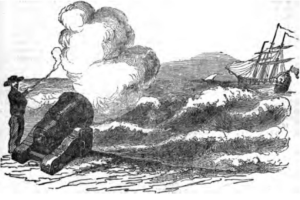
The Ghost Ship of New Haven Sets Sail Shrouded in Mystery
Tales of a spectral ship seen sailing in the skies above New Haven have haunted Connecticut’s imagination since the late 1640s.
Read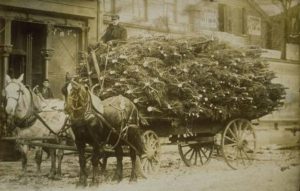
O Christmas Tree!
On December 25, 1890, The Hartford Courant reported that Christmas Eve had seen crowded stores and train delays of up to an hour due to heavy travel.
Read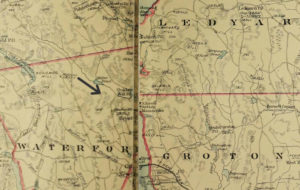
The Rogerenes Leave Their Mark on Connecticut Society
A refusal to compromise became the governing principle of this religious group active in the New London area for some 200 years.
Read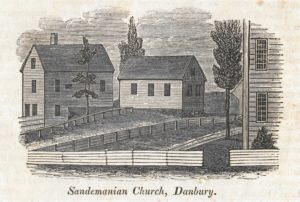
The Sandemanians
The Sandemanians of Danbury were a semi-communal sect whose local influence outweighed its tiny numbers.
Read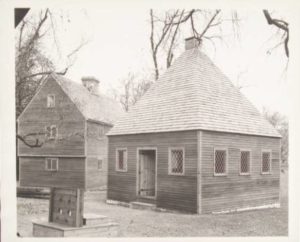
What’s a Puritan, and Why Didn’t They Stay in Massachusetts?
Mean-spirited, repressed souls or persecuted refugees and rugged egalitarians? Connecticut’s state historian sets the record straight.
Read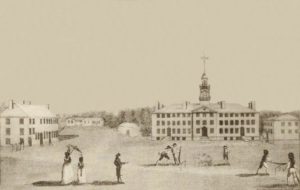
Eleazar Wheelock: Preacher, Dartmouth College Founder
Eleazar Wheelock was a notable eighteenth-century farmer, Congregational minister, revivalist, educator, and founder of Dartmouth College.
Read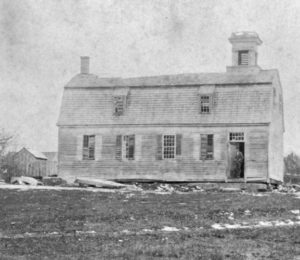
An Experiment in Evangelization: Cornwall’s Foreign Mission School
The story of the Foreign Mission School connects the town of Cornwall, Connecticut, to a larger, national religious fervor that preoccupied the United States during the Second Great Awakening.
Read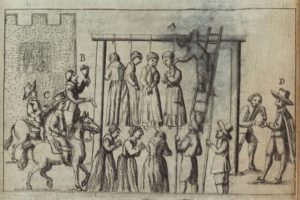
Witchcraft in Connecticut
Well before the Salem trials, Connecticut residents were executing “witches.” Connecticut is home to what was most likely the first execution of its kind in colonial America.
Read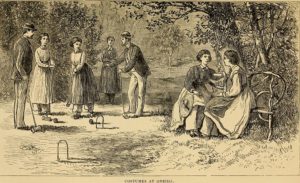
The Wallingford Oneida Community
In the late 1800s, Wallingford was home to a small branch of the Oneida Community.
Read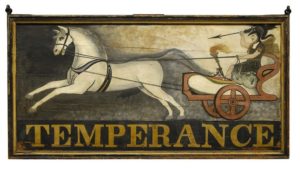
Hope for the West: The Life and Mission of Lyman Beecher
Lyman Beecher was one of the most influential Protestant preachers of the 19th century, as well as father to some of the nation’s greatest preachers, writers, and social activists.
Read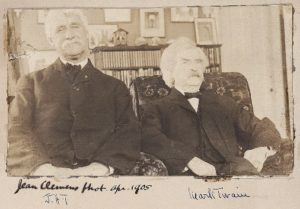
Joseph Hopkins Twichell: Asylum Hill’s Religious Leader and Mark Twain’s Closest Friend
Inspired by his friendship with Mark Twain, Joseph Twichell took up such causes as labor rights, immigration, education, and interfaith advocacy.
Read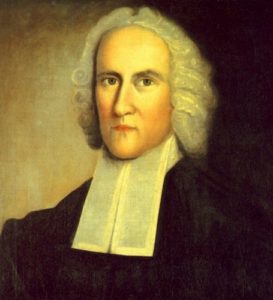
Jonathan Edwards’ Famous Sermon – Today in History: July 8
On July 8, 1741, theologian Jonathan Edwards spoke the words of the sermon “Sinners in the Hands of an Angry God” at a Congregational church in Enfield.
Read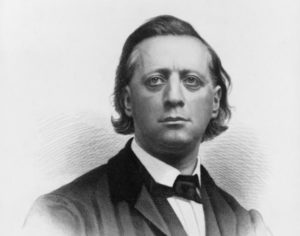
Henry Ward Beecher Born – Today in History: June 24
On June 24, 1813, Henry Ward Beecher was born in Litchfield to the well-known Beecher family.
Read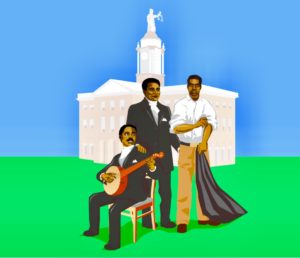
Early Civil Rights and Cultural Pioneers: The Easton Family
For a variety of reasons, the Eastons were one of New England’s most notable 19th-century African American families.
Read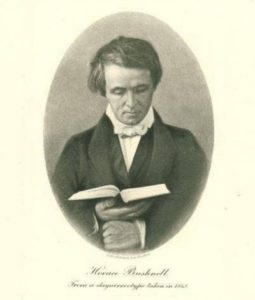
Horace Bushnell Born – Today in History: April 14
On April 14, 1802, Horace Bushnell was born in Bantam and is often called the “father of American religious liberalism.”
Read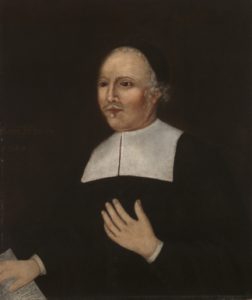
Forgotten Founder: John Davenport of New Haven
John Davenport, the founder of New Haven, was a prominent Puritan leader during the early years of the New England colonies.
Read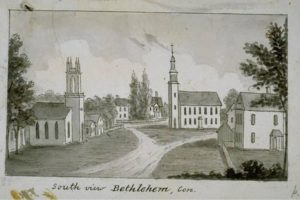
The Reverend Joseph Bellamy Makes Bethlehem a Holy Place
The Reverend Joseph Bellamy was a dynamic preacher, author, and educator during the 18th century and a long-time resident of Bethlehem, Connecticut.
Read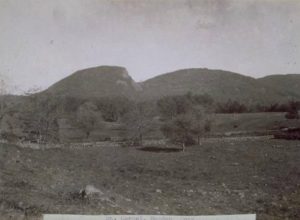
A Volcanic Giant Sleeps in Hamden
The unique ridge that runs east-west just six miles north of New Haven is known as “Sleeping Giant” for its resemblance (from a distance) to a recumbent person.
Read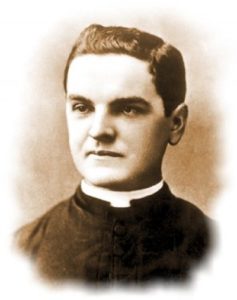
Knights of Columbus Chartered – Today in History: March 29
In October 1881, the Reverend Michael Joseph McGivney and male parishioners of St. Mary’s Roman Catholic church in New Haven founded Knights of Columbus.
Read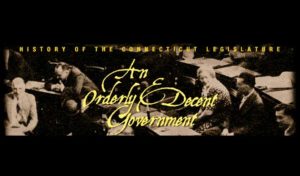
An Orderly & Decent Government: Searching for the Common Good, 1634-1776
In the Great Awakening, impassioned evangelical ministers attracted crowds of thousands and the General Assembly promptly banned traveling preachers.
Read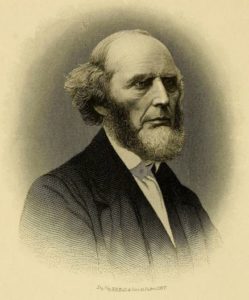
Charles Grandison Finney Spreads Revivalism and Education throughout the Mississippi Valley
Charles Grandison Finney was a revivalist preacher and educator born in Warren on August 27, 1792.
Read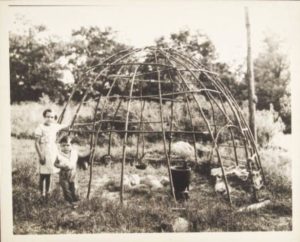
Living Rituals: Mohegan Wigwam Festival
The Wigwam festival is a modern version of the ancient Mohegan Thanksgiving for the Corn Harvest, or Green Corn Festival.
Read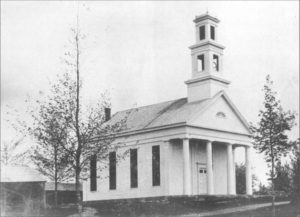
Pan-Harmonicum Strikes a New Note for Puritan Worship in Lebanon
Musical instruments, once scorned as ungodly, found a place in Congregational services at the turn of the 19th century.
Read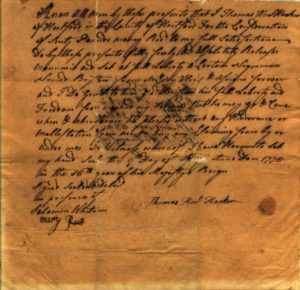
Gradual Emancipation Reflected the Struggle of Some to Envision Black Freedom
Connecticut enacted gradual emancipation in 1784 but the abolition of slavery would not occur until 1848.
Read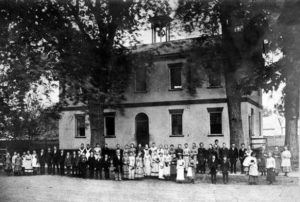
Wethersfield Academy
In the mid-17th century, Connecticut was considered the most literate place on earth, primarily due to the early Puritans’ insistence that everyone be able to read and write.
Read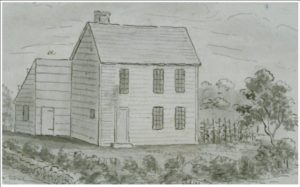
Samson Occom and the Brotherton Indians
A Mohegan and founding member of a pantribal group of Christian Indians, Occum sought to preserve Native autonomy by living apart from European communities.
Read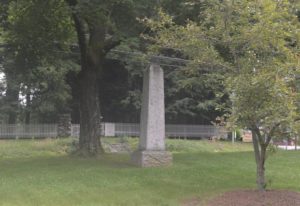
Hidden Nearby: Bethlehem’s Joseph Bellamy Monument
This monument is dedicated to the leading pastor and theologian, Joseph Bellamy, promoted New Light Congregationalism in the 1700s.
Read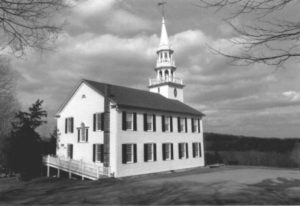
Warren Congregational Church, a Longstanding Community Center
An examination of the Warren Congregational Church not only tells us about the central role churches played in developing communities during this period in New England’s history.
Read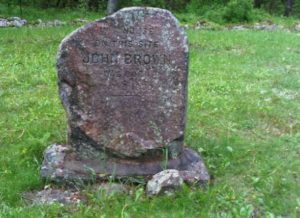
The Fight Over Slavery Reaches Torrington
In the years prior to the Civil War, Torrington, like many towns in New England and the rest of the country, found itself divided by the issue of slavery.
Read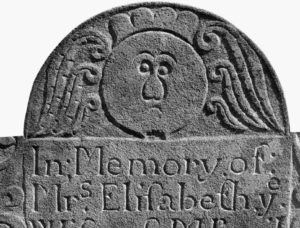
The Art of Life and Death in Colonial Bolton
Bartlett was the first gravestone carver in the upper Connecticut River Valley, and his headstones tell historians much about early life in the northeastern colonies.
ReadMore Articles




